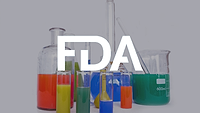Bill That Would Improve FDA’s Ability to Protect U.S. Infant Formula Supply Reintroduced

Image credit: Freepik
The bipartisan Protect Infant Formula From Contamination Act has been reintroduced to U.S. Congress by Senators Gary Peters (D-MI) and John Hoeven (R-ND). It aims to strengthen the U.S. Food and Drug Administration’s (FDA) oversight of infant formula manufacturing to improve the safety of the country’s infant formula supply and prevent future shortages.
The bill was inspired by the infant formula shortage of 2022, which was precipitated by an outbreak of Cronobacter sakazakii infections in infants linked to contaminated formula produced at Abbot Nutrition’s Sturgis, Michigan plant—a major manufacturer of infant formula in the U.S. The subsequent production pause at the Sturgis facility led to a nationwide shortage of formula. In 2023, FDA issued warning letters to three additional infant formula manufacturers to improve conditions at their plants The agency has since published a Long-Term National Strategy to Increase the Resiliency of the U.S. Infant Formula Market.
The Protect Infant Formula from Contamination Act would take a three-pronged approach to reduce the risk of infant formula contamination by important foodborne pathogens. Specifically, the bill would:
- Require infant formula manufacturers to conduct testing for Cronobacter or Salmonella in infant formula marketed for consumption: Under current law, infant formula manufacturers are required to notify FDA if a product is contaminated, but only if the product has left the manufacturer’s control. Knowledge about such incidents would enable the FDA to more effectively and proactively target its inspections, import controls, and finished product testing requirements for manufacturers.
- Require infant formula manufacturers to share positive contaminant results with FDA: The bill would require manufacturers to share contamination information with FDA, supporting the agency’s efforts to quickly identify the strains and origins of contamination, detect other potentially contaminated products, and aid outbreak investigations.
- Require infant formula manufacturers to consult with FDA on how to properly dispose of contaminated products: Bacteria can live and spread across multiple surfaces in the process of removing infected product from a facility. The safe, comprehensive disposal of contaminated products is critical to ensuring that recontamination risks are eliminated and do not impact other product batches. The bill would ensure the highest, science-backed standards and methods of disposal are made available to manufacturers with impacted products.
Additionally, the bill would require FDA to issue a progress report to Congress on its implementation of the recommendations it provided in its Long-Term National Strategy to Increase the Resiliency of the U.S. Infant Formula Market, published in 2025. Among other recommendations, FDA’s strategy calls for the testing authorities included in the Protect Infant Formula from Contamination Act.
The bill is supported by consumer protection groups like the Center for Science in the Public Interest, the Association of Maternal and Child Health, First Focus, Zero to Three, March of Dimes, MomsRising, and the Academy of Nutrition and Dietetics.
Looking for a reprint of this article?
From high-res PDFs to custom plaques, order your copy today!






